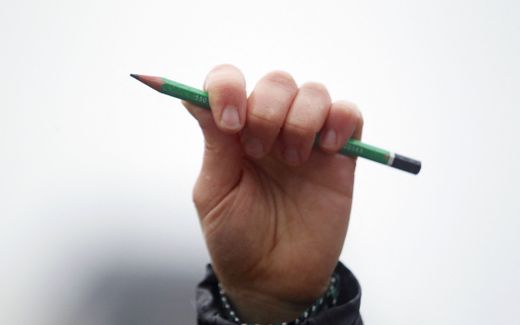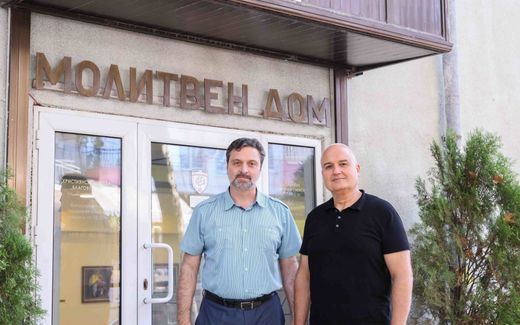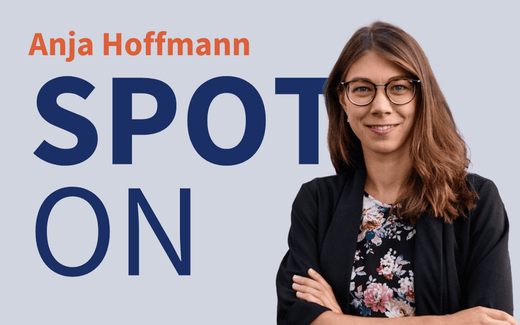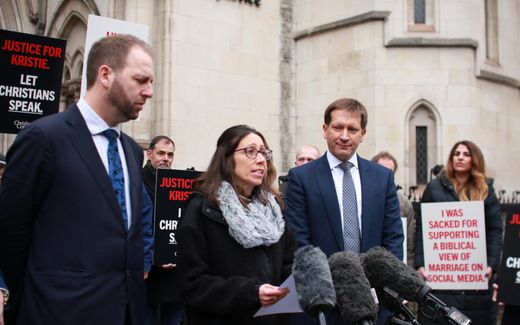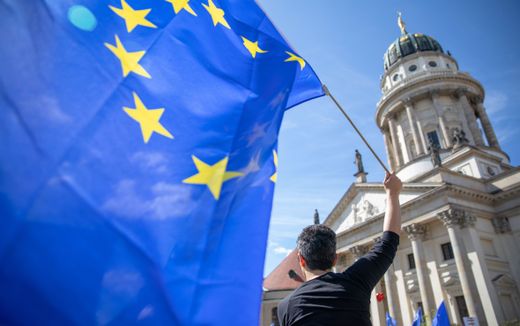Christians, fight disinformation about the euro
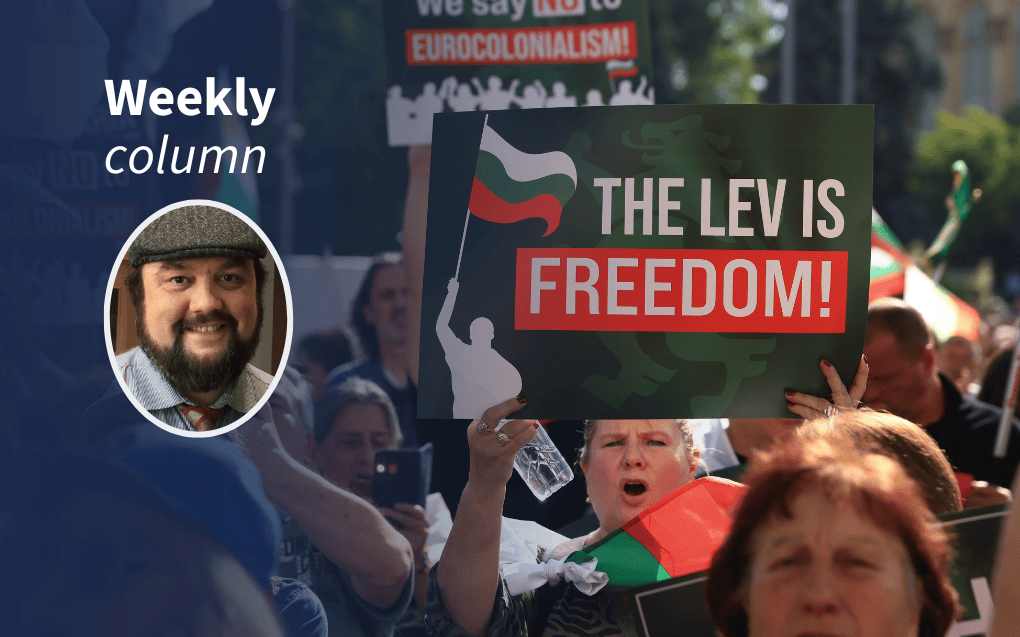
Photo Canva.com, EPA, Vassil Donev
Christian Life
Bulgarians pay with the Lev. But they will switch to euros soon. In this time of unrest, disinformation, and protest, Christians play a crucial role, says Vlady Raichinov.
Stay up to date with Christian news in Europe? Sign up for CNE's newsletter.
In a small and cozy town in Bulgaria’s Balkan foothills, 57-year-old Nikolay Donchev wakes up before sunrise. Every day starts early for him. He works as a baker. His modest shop is well known on his street with the buttery aroma of banitsa – a traditional pastry loved by young and old alike, usually accompanied by a bottle of ayran, or the sweet, malty taste of boza.
Since he opened his bakery, Nikolay has always used Bulgaria’s national currency: leva. But with the country set to adopt the euro on January 1, 2026, he finds himself somewhat nervous. How will his customers respond to prices in euros? Will his suppliers use the conversion as an excuse to raise costs? Will he have to buy a new cash register? Will there be a period when both currencies are in use – and how should he best prepare if it gets messy?
Nikolay sighs and glances at the faded sign above his counter. Change is coming.
Currency
These feelings of uncertainty are now shared by many, especially those living in small towns and villages. On June 4, the European Commission announced that Bulgaria has finally met all the rules to join the Eurozone. This means that the country is now on a countdown. The government must run a good informational campaign to explain things clearly. It should also put controls in place to stop unfair price speculations during the switch.
For more than 140 years, the Bulgarian lev has been a part of people’s daily lives. It was introduced in 1881, and named after the lion, as a symbol of the young nation’s pride and strength.
The lev went through many struggles over the years. In the mid-1990s, for instance, it survived a period of terrifying hyperinflation. As a response, the government at the time decided in 1997 to link the currency to the German Deutsche Mark to bring back stability. The measure was known as “Currency Board”, and has been active ever since.
In 1999, this connection was transferred to the euro, at a fixed rate of 1,95583 leva for one euro. However, for many people like Nikolay, who have always earned and spent in leva, the idea of really switching to another currency feels a bit strange and even a little scary.
In recent years, studies have shown that Russia has used online trolls to spread doubts and create fears about the euro and the European Union.
The euro itself is now two and a half decades old. It was first introduced as digital currency and then changed into physical coins and banknotes in 2002. Since then, it has helped European countries to do business more easily, and has made travelling and shopping across borders simpler.
After Bulgaria joined the EU, the Union added Cyrillic text on euro banknotes in 2013, when the “Europa series” was introduced. After all, that is the alphabet Bulgaria is using.
Today, more than 340 million people in 20 countries are using the currency. If everything goes as planned, Bulgaria will become the 21st.
Confusion
However, while experts talk about benefits like lower banking costs and easier trade, some people still feel uneasy – and not just because of inflation. Their worries are also fuelled by a wave of false stories and social media rumours. In recent years, studies have shown that Russia has used online trolls to spread doubts and create fears about the euro and the European Union. Fake news posts often paint a picture of disaster – that prices will double overnight or that Bulgaria will lose its identity.
Online petition campaigns claim that “EU bureaucrats have built the Digital euro – a programmable currency that can track, limit or freeze your money at will” and point to recent blackouts that “plunged Spain, Portugal and southern France into darkness.” Stories like these are designed to trigger strong emotions and are quickly shared, especially by people who already feel left out or uncertain about the future.
Propaganda narrative
Evidently, the topic is not just about money. There are bigger questions at stake. In the national Parliament, most political parties support the euro switch. But there are others – mostly nationalistic or pro-Russian groups, who strongly oppose this change. They claim Bulgaria is now losing control and giving in to Brussels.
Even the country’s President, Rumen Radev, who claims to be pro-EU but often reiterates Moscow’s propaganda narrative, asked for a national vote on the issue. Such a vote, however, is not allowed under Bulgarian Constitution since the country has already signed agreements and passed legislation for European integration. So, the Parliament said no to the idea of referendum. Still, the proposal stirred up protest in several cities. People holding Bulgarian flags shouted slogans against the euro, worried that it would hurt poor families and raise prices overnight.
On the other hand, many others see joining the Eurozone as something good, especially from long term perspective. Articles and overviews point out that this change has been in the air for several decades now. Since joining the European Union in 2007, Bulgaria has had its eyes firmly fixed on better integration and stronger affiliations with its continental family. This process has taken years of political work: changing laws, improving the economy and installing safeguards in close partnership with the European Central Bank.
Raising voices, posting angry comments online or waving flags in the streets won’t help.
For people in larger cities and especially among younger Bulgarians, the euro is a normal part of being in the EU. Many already travel, shop or work abroad where the currency is used.
Christian response
When people argue loudly or protest without understanding the facts, it often does more harm than good. In a time of major financial change, stirring up mass protests and spreading ominous warnings only increases tension. Panic is a poor advisor. It fuels irrational fears and opens the door to speculation and financial abuse. Is there a different approach?
In a time like this, Christians can play an important role.
Changing a country’s currency is never easy. But raising voices, posting angry comments online or waving flags in the streets won’t help. These actions may feel satisfying, but they don’t solve real problems. What actually helps is providing clear explanations, encouraging honest and calm public discussions, and planning practical steps together. Sadly, nationalistic politicians wouldn’t do that. They are more interested in spreading fear and stirring conflict than in truly helping vulnerable people to prepare for the change.
In a time like this, Christians can play an important role. They are called to be a voice of peace, not fear. In the New Testament, Jesus says, “Render to Caesar the things that are Caesar’s, and to God the things that are God’s” (Matthew 22:21, ESV). He expects His followers to act as responsible citizens: praying and working toward “a peaceful and quiet life, godly and dignified in every way” (1 Timothy 2:1–2, ESV), while keeping their hearts focused on what truly matters.
More than that, a Christian response should include helping ordinary people understand what is happening, stay calm, and prepare without panic. Learning how to convert prices, supporting local businesses, and making sure that those who are most affected are not left behind – these are the things that matter most while the country prepares for January 1.
Good news
One small but meaningful detail will appear on the new Bulgarian 2 euro coin: the words “GOD SAVE BULGARIA”. This inscription was a tradition on Bulgarian coins before the Communist regime removed it in the mid-1940s. Now, as the country prepares to join the Eurozone, the phrase is returning – not just as a historic reference, but as a quiet reminder of Bulgaria’s Christian heritage. Bible-believing Christians can be thankful for this development. In a world that is becoming more secular, such a public mention of God opens the door for gentle conversations about faith. The phrase can become a natural starting point for sharing the Gospel of Jesus Christ – the truly good news that can bring lasting hope and peace.
Back in his bakery, Nikolay has started with his preparations for the transition. He’s now putting prices in both leva and euros. He’s printing small conversion tables for his customers. Young people don’t seem bothered at all. “As long as the banitsa is warm”, one of them says with a grin, “I don’t care if I pay in leva or euros.”
Nikolay chuckles. He’s not completely relaxed about it yet. But step by step, he’s adapting, one banitsa at a time.
Related Articles


